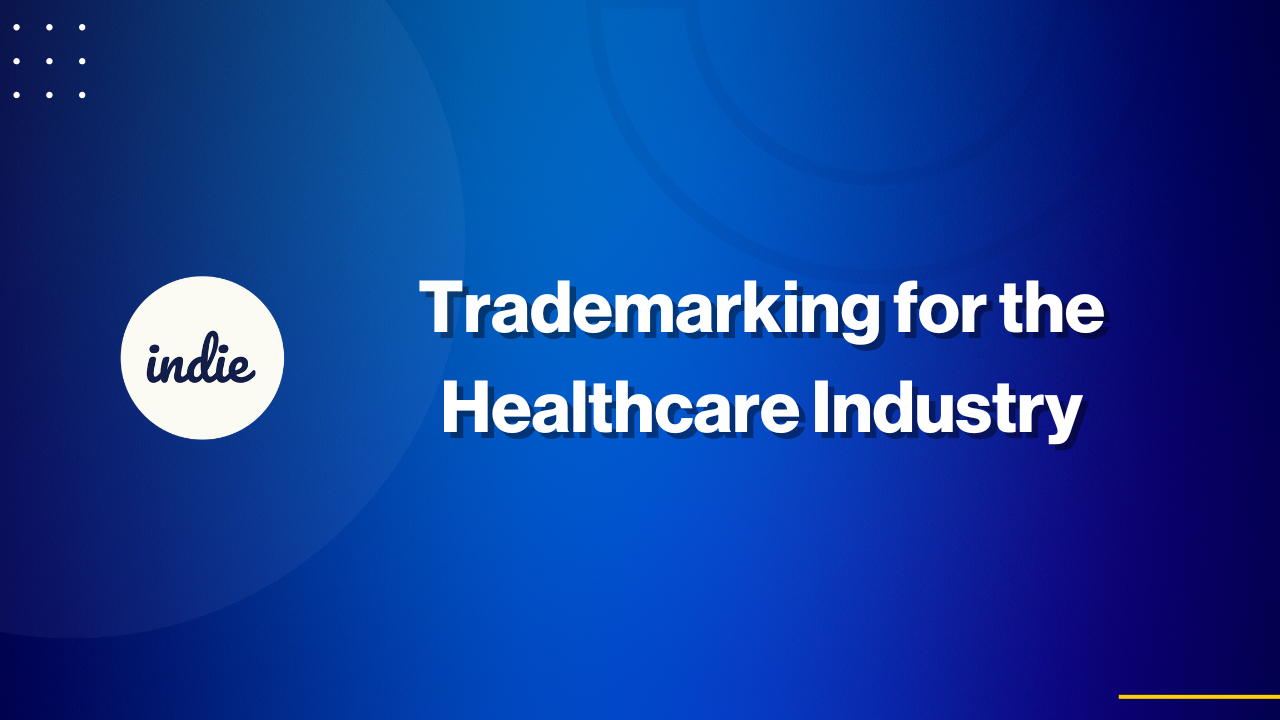According to a 2024 survey by the American Marketing Association, 79% of healthcare organizations believe that brand protection is essential for building trust with patients. Yet, many healthcare businesses overlook the importance of trademarks when they’re starting out.
In this blog post, we’ll break down everything you need to know about trademarking in the healthcare industry—from why it’s important to how to do it right.
What is a Trademark in Healthcare?
A trademark is any word, phrase, symbol, or design that identifies and distinguishes the source of goods or services. In the healthcare industry, trademarks can cover:
- Drug names
- Medical devices and equipment
- Healthcare services
- Logos and symbols
- Slogans and taglines
Trademarks help patients identify your products and services, protect your brand from competitors, and build patient loyalty.
Why Healthcare Trademarks are Unique
The healthcare industry has some special challenges when it comes to trademarks:
1. Strict Regulatory Oversight
Healthcare trademarks often have to comply with FDA regulations in the U.S. and equivalent bodies in other countries. For example, drug names can’t be misleading or easily confused with other drugs (FDA Guidance).
2. Risk of Patient Confusion
Trademarks in healthcare must be clear and distinctive. Confusing or similar names can have serious consequences, such as medication errors.
3. Global Implications
Many healthcare companies operate internationally, which means trademarks need to be protected in multiple countries.
Steps to Trademarking in the Healthcare Industry
Here’s a step-by-step guide to help healthcare businesses protect their brands.
1. Conduct a Comprehensive Search
Before filing, it’s essential to search for existing trademarks to avoid conflicts. Use databases like:
- USPTO Trademark Search
- WIPO Global Brand Database
A search ensures your name or logo is unique and doesn’t infringe on someone else’s mark.
2. Choose a Strong and Distinctive Name
The best trademarks are distinctive and memorable. Avoid generic terms like “Medical Center” or “Pharma.” Instead, create a name that stands out.
For example, “Thermo Fisher Scientific” and “Humana” are strong trademarks because they’re unique and don’t describe the products directly.
3. Consider Regulatory Guidelines
For drug names in the U.S., the FDA has strict guidelines to prevent confusion. Drug trademarks must:
- Not be too similar to existing drug names
- Not imply unproven claims
- Be easy to pronounce and remember
This is known as the FDA’s proprietary name review.
4. File for Trademark Protection
File your trademark application with the U.S. Patent and Trademark Office (USPTO) or the relevant office in your country. If you plan to sell internationally, consider filing under the Madrid Protocol for multi-country protection (WIPO Madrid Protocol).
Common Pitfalls in Healthcare Trademarks
- Failing to Clear the Mark: Skipping the search step can lead to legal disputes.
- Not Considering Global Use: Make sure the name works in different languages and doesn’t have unintended meanings.
- Ignoring Regulatory Review: Drug and medical device names must meet regulatory requirements.
A 2023 study by IP Watchdog found that 40% of healthcare trademark disputes are due to confusion with existing names (IP Watchdog).
Benefits of a Strong Trademark in Healthcare
A well-protected trademark can help your healthcare brand:
- Build Patient Trust: Patients and professionals trust recognized, well-protected brands.
- Avoid Legal Disputes: Having a registered trademark gives you the legal tools to stop others from using your name.
- Enhance Market Value: A strong trademark can be a valuable asset if you sell your business or license your products.
- Prevent Counterfeiting: Counterfeit healthcare products are a major global issue, and trademarks help fight back.
The World Health Organization estimates that 1 in 10 medical products in low- and middle-income countries are substandard or falsified (WHO).
International Considerations
Healthcare is a global business, and protecting your trademark worldwide is key. Here’s how:
- Madrid Protocol: Apply for protection in multiple countries with one application.
- National Filings: In countries not covered by Madrid, file directly.
- Monitor Global Infringement: Use tools like the WIPO Global Brand Database to keep tabs on your trademark’s use abroad.
Real-World Example: Healthcare Trademark Dispute
In 2021, two major pharmaceutical companies, Biogen and BioGenix, ended up in court because their names were too similar. The dispute centered on confusion in the market and the potential impact on patients.
This case shows why it’s crucial to choose a unique name and register it properly to avoid expensive and time-consuming disputes.
Conclusion: Take Action to Protect Your Brand
In the healthcare industry, your brand is more than just a name—it’s a promise to patients and customers. Trademarking your name and logo is a key part of that promise.
Start by:
- Conducting a thorough search
- Choosing a distinctive and unique name
- Filing for protection and ensuring compliance with industry regulations
- Monitoring your trademark to keep it strong
If you’re expanding internationally, consider the Madrid Protocol to save time and money.
For more guidance, check out:
- USPTO Trademark Basics
- WIPO Madrid System
- FDA Proprietary Name Review
Need help navigating this process? Consider working with a trademark attorney experienced in healthcare branding. Protect your brand so you can focus on what matters most—helping patients and saving lives.

